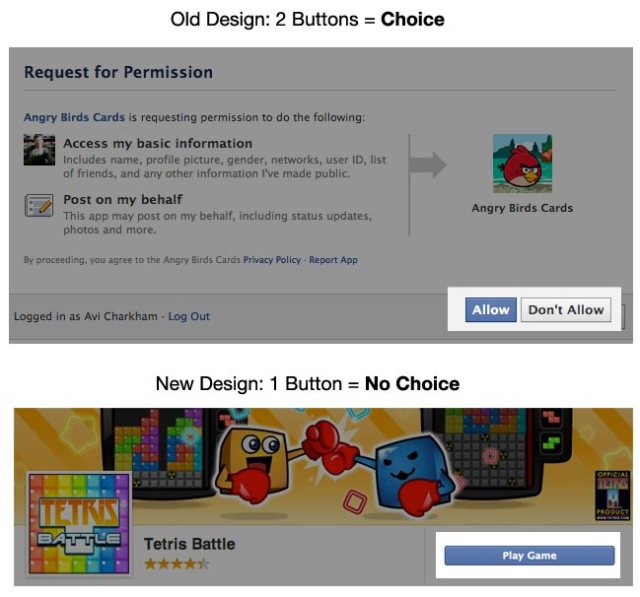Things change quickly in social media, and it’s easy for several generations of changes to happen even between logins. Back at the beginning of the summer, I told you how to setup a safe and secure Facebook profile, and in that post, I talked about the risks of using Facebook add-ons such as games and apps:
Let me be frank here: you should block all apps and websites from your Facebook account. While Facebook is held to stricter and stricter privacy standards, its third party associates can (and have been found to) keep pretty shady privacy standards. They have been found to store, share, and sell your information. They can open your otherwise private profile to many unscrupulous individuals. They add extra layers of custom privacy concerns. I could go on and on forever about why using Facebook apps is risky. Just don’t use them. Every third-party Facebook app is a superfluous add-on to the social network. You can find better versions of every offering elsewhere around the web in locations that don’t store so much personal information about you.
So while all of those Mafia and Farming games on Facebook may seem fun (no they don’t), you’re probably better off avoiding them if you want the safest-possible Facebook experience. In the last week, Facebook has made some quiet changes to the way you allow apps and games to access your private information. While still technically requiring you to grant permission before an app or game can access your profile and news feed, the new design relies on social engineering in hopes that more people will unwittingly grant access to 3rd party games. Avi Charkham points out the new features in his TechCrunch article:
In the old design Facebook used two buttons – “Allow” and “Don’t Allow” – which automatically led you to make a decision. In the new App Center Facebook chose to use a single button. No confirmation, no decisions to make. One click and, boom, your done! Your information was passed on to the app developers and you never even notice it.
Here are their images for example:
Charkham’s post features four more ways in which the new Facebook design actually hinders privacy and security in favor of advertising dollars. Some of the new redesigned features include hiding the once-visible details about the specific permissions an app is requesting behind a small grey question-mark symbol. The article argues that all of this is done in the name of share value as the now-public Facebook looks to appease unhappy stock-holders. Says Charkham, “After all, this access to our information and identity is the currency Facebook is trading in and what is driving its stock up or down.” Check out the TechCrunch article for more ways in which Facebook is using social engineering to try to trick you into over-sharing.

